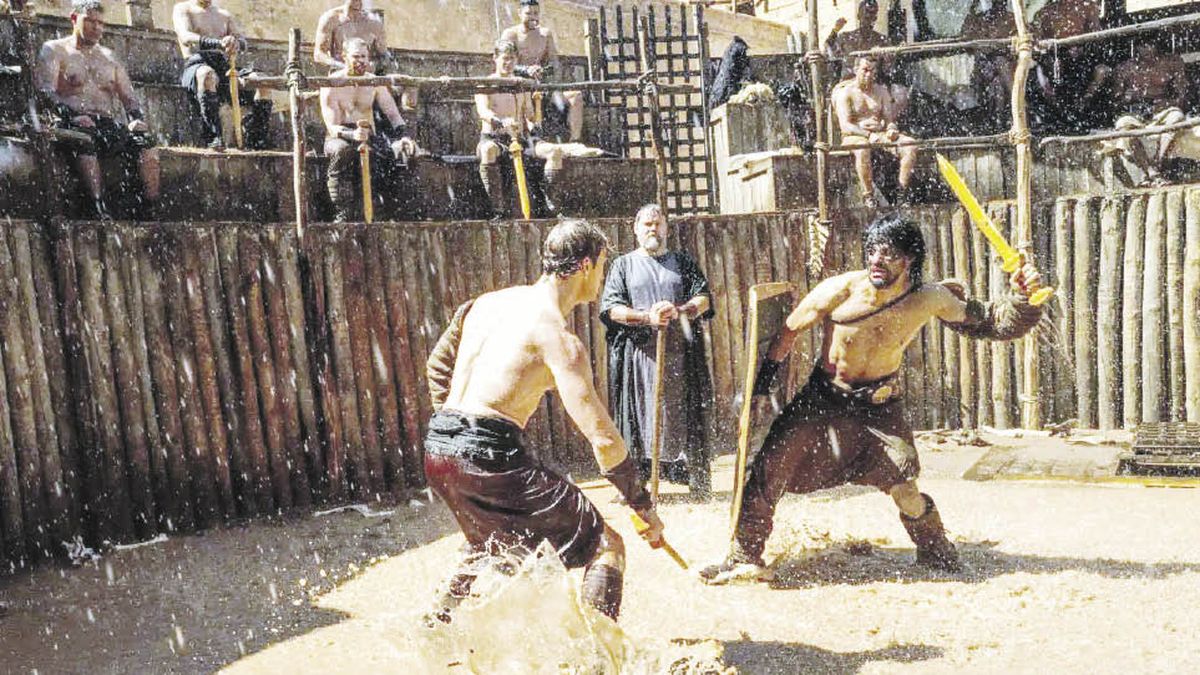There are 8 episodes of less than an hour each with different themes well thought out to achieve a complete vision, beginning logically with “The Gladiators”, which debuted in prime time last Saturday. The work of the executive producer Johanna Woolford Gibbon (of the Stephen Hawkings series “Genius”) and the Dutch director Roel Reine (of the Leo Di Caprio production of “Washington”) managed to synthesize in less than 50 minutes the weapons, the training of the “morituri”, providing more seriousness than that of many famous movies, and above all demolishing myths about the high mortality of these great sports idols from the time of the Caesars. It took too much to train a good gladiator to let them kill him just like that, even if they were defeated (there is a tombstone of a gladiator who had won 30 times and with only 10 defeats, none of them fatal). The series uses ancient frescoes and the texts of the poet Marcial who witnessed the first games (100 days in a row) with which Tito inaugurated the Colosseum in the year 80 of our era.
The series picks up pace and suspense in the second episode, “The Builder,” about the hardships of the architect Haterious (Daniel De Bourg) when the ruthless Emperor Domitian closes the Colosseum for two years – risking the wrath of the people and their need for “bread”. and Circus”– for impossible reforms, such as making wild beasts and even forests or cliffs magically emerge from the arena of the stadium thanks to special effects to be placed in the new and labyrinthine basements. In later chapters, classic themes such as “Los Mártires” and “El domador de bestias” will be seen, along with others that could be thought to be more current, such as “Las gladiadoras”, despite the fact that these fighters already appeared in the classic of Cecil B. De Mille “The Sign of the Cross” (1932).
But perhaps the most interesting moment in this series full of surprising historical data and strong images, given the violence of the Roman circus, is the last episode, “The Pagan”, which illustrates how in the fourth century AD Christians stopped being thrown to the lions and ended up winning, though not necessarily turning the other cheek.
“Colosseum” (“Colosseum, “GB, 2022). Director: R. Reiné. Int.: S. El Khalidy, V. Moli, N. Benzakour. Miniseries (History).
Source: Ambito
I am an author and journalist who has worked in the entertainment industry for over a decade. I currently work as a news editor at a major news website, and my focus is on covering the latest trends in entertainment. I also write occasional pieces for other outlets, and have authored two books about the entertainment industry.




